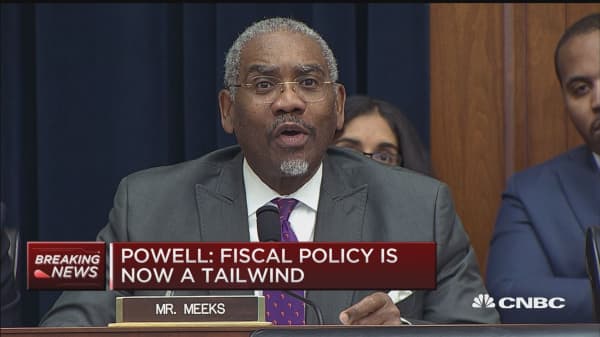Online lending hasn’t removed discrimination, study finds
- As more people apply for mortgages via a computer screen, ethnic discrimination was supposed to wane.
- Yet algorithms can be just as biased as a loan officer sitting across a desk, according to a new study.
- The researchers found that minorities paid 5.3 basis points extra in interest with online mortgage applications, little different than the 5.6 additional points they shell out with the overall set of lenders.
With more people applying for mortgages online, the lending landscape was expected to become more equitable.
The logic was that lenders couldn’t discriminate against a borrower based on their skin color if they weren’t face-to-face with them.
Yet algorithms can be just as biased as a loan officer sitting across a desk, according to a new study by professors at the University of California, Berkeley titled, “Consumer-Lending Discrimination in the Era of Fintech.”
Online platform Quicken Loans is one of the largest mortgage lenders in the United States, according to the study, and nearly all major lenders offer applications that can be completed entirely online.
“It’s a surprise finding — because there’s no human,” said Robert Bartlett, a law professor at the University of California, Berkeley and a co-author of the study.
The researchers found that minorities paid 5.3 basis points extra in interest with online mortgage applications, little different than the 5.6 additional points they shell out with the overall set of lenders.
Each year, Latino and African-American borrowers pay between $250 million and $500 million extra in mortgage interest, the study said.
The researchers used machine learning techniques to analyze four large data sets of U.S. mortgages. They controlled for credit risk.
“Whatever difference in rates that we see, it’s not due to differences in credit worthiness,” Bartlett said.
How exactly these algorithms result in unfair rates is unknown because the underwriting is a “black box,” Bartlett said.
One potential explanation, however, is that online lenders utilize variables other than the traditional financial ones like credit score; they might be factoring in a borrower’s geography or education level to price their loans, Bartlett said.
Any meaningful review of mortgage lending practices must consider a myriad of measures that indicate a customer’s ability to repay, said Jeff Sigmund, a spokesman for the American Banker’s Association.
“Some of those factors could result in borrowers paying different interest rates even if their credit scores and loan-to-value ratios are similar,” Sigmund said.
However, the increasing use of “big data,” in algorithmic lending, Bartlett said, could deepen discrimination further.
For example, the high school someone attended might predict their default rate. But it could predict their ethnicity, too.
The researchers found one sign of progress among automated lenders: they’re more likely than traditional lenders to approve minority borrowers.
“Conventional lenders are leaving money on the table — they’re turning away black and Latino borrowers that would appear to be acceptable,” Bartlett said. “Those applicants are in turn being picked up by the fintech lenders.”
https://www.cnbc.com/2018/11/27/online-lenders-are-charging-minority-borrowers-more-study-concludes.html


